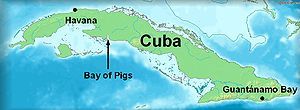During the 2014 midterm election cycle, the Koch-funded group Concerned Veterans for America (CVA) backed a bevy of extreme conservative candidates and helped send top Koch cronies (and veterans) Joni Ernst and Tom Cotton to the U.S. Senate. Scarcely a couple months into the 2016 cycle, CVA has released a report recommending that much of the U.S. Veterans Administration be privatized, an extreme policy position that would jeopardize the care received by millions of our nation’s veterans.
Last month, CVA’s Fixing Veterans Health Care Taskforce released its final report suggesting “policy reforms” for the VA, namely that the VA’s health care system be converted into an independent, nonprofit corporation and advocating for the creation of a private insurance option for veterans. Additionally, new enrollees into the proposed system would face tougher enrollment standards. According to USA Today, a whopping one-fifth of future veterans would not be eligible for care under CVA’s proposed system. It’s no wonder then that the American Legion has come out against the plan, as did Paralyzed Veterans of America, and that “most veterans service organizations skipped” the rollout of the CVA’s final report, according to Stars & Stripes Magazine.
Most veterans organizations don’t support CVA’s privatization plan, and it has the potential to negatively impact some 20 percent of future veterans. So what explains CVA’s release of what Stars & Stripes calls a “radical” plan for the VA? Consider that CVA received a whopping $5.5 million from the Koch brothers’ “secret bank” – Freedom Partners – in 2013. The Kochs have advocated for education reform by way of abolishing the federal Department of Education and campaign finance reform vis-à-vis doing away with the FEC. So it’s disappointing, but not surprising, that a Koch group’s vision of VA reform is to privatize most of the agency charged with caring for our nation’s veterans.
Koch favorite and presidential hopeful Senator Marco Rubio has already endorsed the extreme CVA plan. Will the rest of the Koch cronies follow suit and contradict the position of most veterans service organizations?
The idea of privatization through vouchers is also supported by two other GOP presidential contenders: former Governor Jeb Bush (R-FL) and Senator Rand Paul (R-KY). The right wing would like nothing more than to dismantle the entire social safety net for everyone.
In a two part segment, MSNBC’s Rachel Maddow noted how the right wing was quietly working to privatize segments of the Veterans Administration through vouchers for health care outside the system.
In the second segment, she speaks with Robert McDonald, Secretary of Veterans Affairs, about the importance of the VA in the American health system, how the VA is improving after recent scandals, and political challenges from conservatives interested in privatization.
Founder of VoteVets.org Eric Solz pointed out in an article for Huffington Post that the voucher system would undermine funding to the VA and shuttle veterans into a system that is not equipped to handle their special needs.
The scandal that rocked the VA over excessive wait times to get care and excessive backlogs in processing claims was terrible. It was also a problem that was, literally, years in the making. Before Secretary Eric Shinseki, not a single VA secretary, Democrat or Republican, tried to get the VA to move to a modern, computerized system. And the VA never prepared for the influx of veterans when we launched the wars in Iraq and Afghanistan, leading to overstretched facilities cooking their books to avoid punishment.
There is no doubt that veterans shouldn’t have to rely on the VA for everything. But what Republican candidates, backed by the Koch-brothers-funded Concerned Veterans for America, talk about is the beginning of the end of the pact we make with our veterans to give them the care they need. What they want is the privatization of veterans’ care: Fight for your country and get a voucher.
What this would do is severely underfund the department, leaving veterans out in the cold when it comes to many of their service-connected injuries. For example, VA centers are often equipped to deal with amputations and traumatic brain injuries in a way that a local doctor or hospital might not be. But if we voucherize the system, local VA centers and hospitals would be forced to shutter their doors. For veterans in need of specialized care — both physical and mental — they may not have an able caregiver to turn to in their area.
Furthermore, the VA, despite the bad press, continues to far outpace private care in national customer satisfaction surveys. Veterans like the care they get at the VA. A lot. Closing the VA is the first step toward ending other popular programs like Medicare. In fact, that’s what this whole fight is about.



Recent Comments